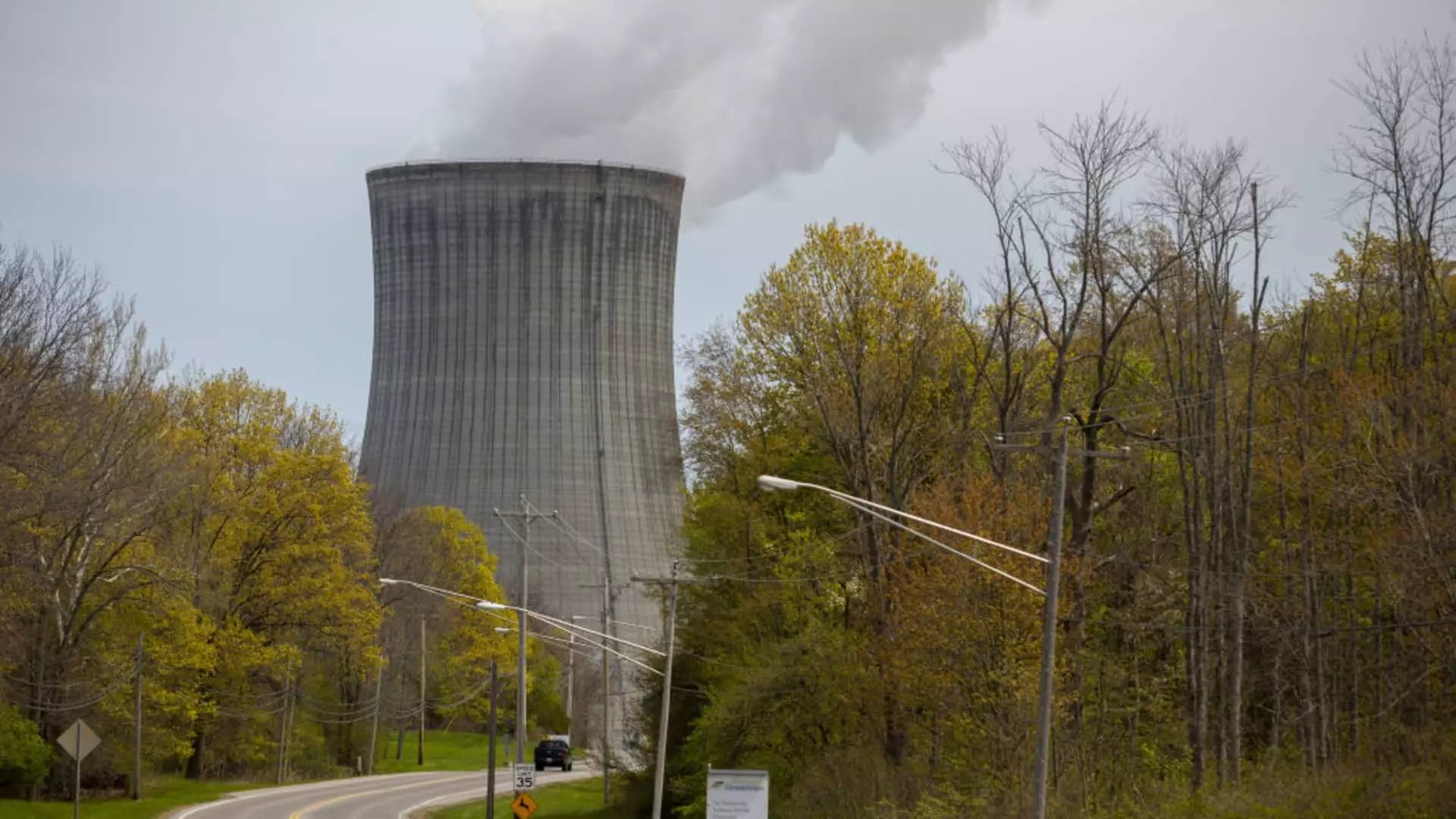In the digital age, data centers have become essential infrastructure, requiring massive amounts of power to run efficiently. Tech companies are now seeking clean energy sources to power these data centers, with some turning to directly connecting them to nuclear plants. This move comes as the demand for power is increasing, driven by factors such as the growth of AI, domestic manufacturing, and the electrification of vehicles. However, this shift to nuclear power is not without its challenges.
Despite the potential benefits of connecting data centers to nuclear plants, some utilities are resisting this trend. The direct connection of data centers to nuclear plants, also known as co-location, has raised concerns among utilities about the impact on the electric grid. Utilities like American Electric Power and Exelon have filed complaints against agreements such as the one between Amazon Web Services and Talen Energy, citing potential harm to existing customers and less available power in the grid area.
The Federal Energy Regulatory Commission (FERC) has been called upon to address the controversies surrounding the direct connection of data centers to nuclear plants. FERC has requested more information on service agreements between companies like Talen Energy and AWS, signaling a need for regulatory oversight in ensuring the balance of power needs between data centers and consumers. The fall conference organized by FERC aims to facilitate discussions on this topic, providing stakeholders with an opportunity to engage informally.
Tech companies and nuclear plant operators have differing perspectives on the benefits and challenges of directly connecting data centers to nuclear plants. While companies like Constellation Energy and Vistra Corp. see co-location as a cost-effective way to support data center buildouts, utilities and regulatory bodies raise concerns about the potential implications on power supply and grid stability. As the power industry grapples with the emergence of AI and increasing power demands, a balance must be struck to ensure fairness and sustainability.
The debate over connecting data centers to nuclear plants highlights the need for a holistic approach to energy management. As companies explore new ways to meet the growing power demands of data centers, considerations about grid stability, consumer interests, and regulatory compliance must be carefully evaluated. Balancing the power needs of data centers with those of all consumers is crucial for ensuring a sustainable and equitable energy future.
While the direct connection of data centers to nuclear plants presents opportunities for clean energy use and cost efficiency, it also raises significant challenges for utilities, regulators, and consumers. By fostering dialogue and collaboration among industry stakeholders, a balanced approach can be achieved to address the complexities of powering data centers in the digital age.

